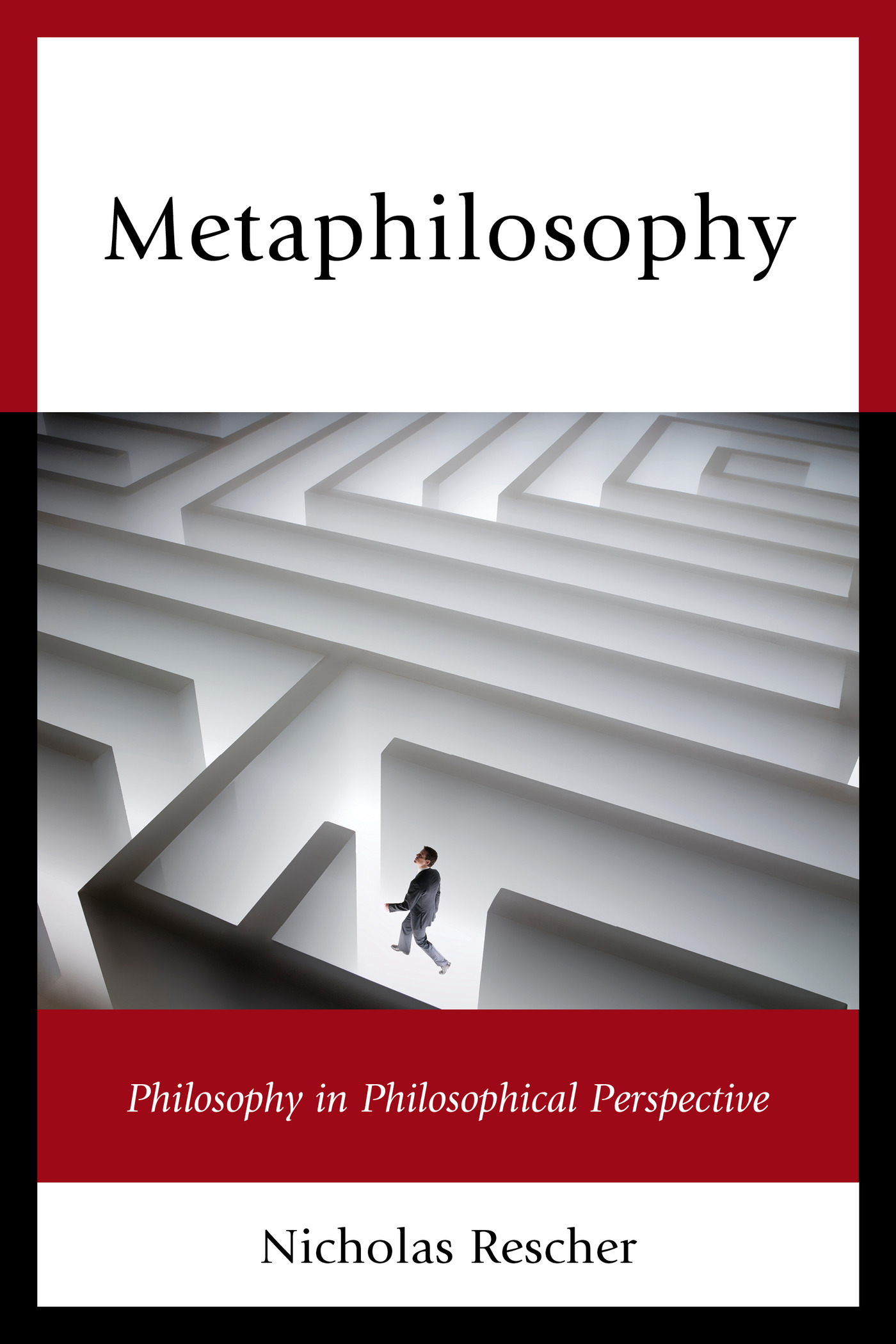Metaphilosophy
Metaphilosophy
Philosophy in
Philosophical Perspective
Nicholas Rescher
LEXINGTON BOOKS
Lanham Boulder New York London
Published by Lexington Books
An imprint of The Rowman & Littlefield Publishing Group, Inc.
4501 Forbes Boulevard, Suite 200, Lanham, Maryland 20706
www.rowman.com
Unit A, Whitacre Mews, 26-34 Stannery Street, London SE11 4AB, United Kingdom
Copyright 2014 by Lexington Books
All rights reserved. No part of this book may be reproduced in any form or by any electronic or mechanical means, including information storage and retrieval systems, without written permission from the publisher, except by a reviewer who may quote passages in a review.
British Library Cataloguing in Publication Information Available
Library of Congress Cataloging-in-Publication Data
Rescher, Nicholas.
Metaphilosophy : philosophy in philosophical perspective / Nicholas Rescher.
pages cm
Includes bibliographical references and index.
ISBN 978-0-7391-9977-0 (cloth : alk. paper)ISBN 978-0-7391-9978-7 (electronic)
1. Philosophy. I. Title.
BD21.R467 2014
101dc23
2014031401
 TM The paper used in this publication meets the minimum requirements of American National Standard for Information Sciences Permanence of Paper for Printed Library Materials, ANSI/NISO Z39.48-1992.
TM The paper used in this publication meets the minimum requirements of American National Standard for Information Sciences Permanence of Paper for Printed Library Materials, ANSI/NISO Z39.48-1992.
Printed in the United States of America
For Tom Rockmore
In cordial friendship
Acknowledgments
The underlying theory of philosophy is a subject that has intrigued me ever since I first came to the field some seventy years ago. The present book endeavors to weave together many threads of thought into one coordinated whole.
I am grateful to Estelle Burris for her dedicated and ever-competent help in preparing this material for publication.
Pittsburgh, PA
June 2014
Introduction
Metaphilosophy is the project of examining philosophy itself from a philosophical point of viewit is the philosophy of philosophy, if you will. Its definitive mission is to facilitate an understanding of how philosophy worksthe aim of the enterprise, the instrumental and procedural resources for its work, and the prospect of its success.
From Plato onwards, philosophers have addressed this topic, usually by way of rather brief discussions of how they themselves purpose to conduct their own philosophical business. The process of a larger self-detached perspective did not really come until the twentieth century.
Metaphilosophy has two dimensions. There is descriptive or historical metaphilosophy which provides an account of what has been thought regarding the conduct of philosophical inquiry, and there is prescriptive or normative metaphilosophy which deliberates about what is to be thought regarding the conduct of philosophizing. The former has a historical orientation, the later a systematic one. The two dimensions cannot be surgically separated, but they differ in matters of priority and emphasis. All the same, the present book squarely prioritizes the systematic and normative dimension. Its emphasis is not too much on what people have said as or what, in the prevailing circumstances would seem to be, the reasonable things to say.
The key fact about metaphilosophy is that it forms a part of philosophy itself. This is a unique feature of the enterprise: the philosophy of biology is not a part of biology, the philosophy of mathematics is not a part of mathematics. And it means that the salient features of philosophizing in generalincluding the inherently controversial and discordant nature of philosophical doctrinesis also bound to afflict metaphilosophy. Here too, as we shall see, there is no prospect of achieving consensus. To be sure, this is not so with respect to the purely historical metaphilosophy concerned to describe what has been done in the way of philosophizing. But it is emphatically so with regard to the normative issues of what can and should properly be done in cultivating the subject. And so, even to ask if cogent philosophizing is possiblelet alone to investigate how it might be carried outis to engage in philosophizing.
Thus, in the final analysis there is no alternative to philosophizing as long as we remain in the province of reasoned inquiry. This salient point was already well put by Aristotle: [Even if we join those who believe that philosophizing is not possible] in this case too we are obliged to inquire how it is possible for there to be no Philosophy; and then, in inquiring, we philosophize, for rational inquiry is the essence of Philosophy. One can abandon philosophy, but one cannot advocate its abandonment through rational argumentation without philosophizing.
Moreover, philosophy has no choice but to be systematic. A single illustration suffices to make the point.
Suppose that we are sailing on the open sea on a vacation cruise ship. It is dusk, and the visibility is getting poor. As we stroll on deck along the rail of the ship, there is suddenly a shout, Man overboard. Someone grabs a life preserver from the nearby bulkhead and rushes with it towards the railing. Suddenly, he comes to a stop and hesitates a moment. To our astonishment he turns, retraces his steps, and replaces the life preserver, calmly proceeding step by step as the region of the incident slips away, first out of reach, then out of sight. Puzzled and chagrined, we turn to the individual and ask why he broke off the rescue attempt. The response runs as follows: Of course, throwing that life preserver was my first instinct, as my behavior clearly showed. But then some ideas from my undergraduate epistemology courses came to mind and convinced me that it made no sense to continue. Intrigued, we ask for more details and receive the following response:
Consider what we actually knew. All we could see was that something that looked like a human head was bobbing out there in the water. But the visibility was poor. It could have been an old mop or a ladys wig stand. Those noises we took for distant shouts would well have been no more than a pulsing of the engines and the howling of the wind. There was simply no decisive evidence that it was actually a person out there. And then I remembered William Kingdon Cliffords classic dictum: It is wrong always, everywhere, and for anyone, to believe anything upon insufficient evidence. So why act on a belief that there was actually a human being in danger out there, when the evidence for any such belief was clearly insufficient? And why carry out a rescue attempt when you do not accept that someone actually needs rescuing?
Something has clearly gone badly wrong here. We may not choose to fault our misguided shipmate as an epistemologist, yet we cannot but wonder about his moral competency.
Even if I unhesitatingly accept and endorse the abstract principle that one must try to be helpful to others in situations of need, I am clearly in moral difficulty if I operate on too stringent a standard of evidence in relevant contextsif, for example, I allow skeptical concerns about other minds to paralyze me from ever recognizing another creature as a human person. For then I will be far reachingly precluded from doing things that, morally considered, I ought to do. William James rightly noted this connection between epistemology and morality, in insisting that the skeptic rudely treads morality underfoot: If I refuse to stop a murder because I am in [some] doubt whether it is not justifiable homicide, I am virtually abetting the crime. If I refuse to bale out a boat because I am in doubt whether my effort will keep her afloat, I am really helping to sink her.... Skepticism in moral matters is an active ally of immorality. There is much to be said for this view of the matter.
Next page
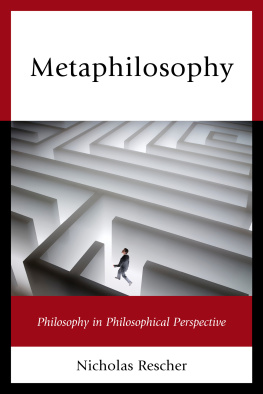




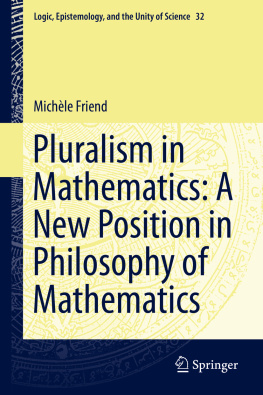
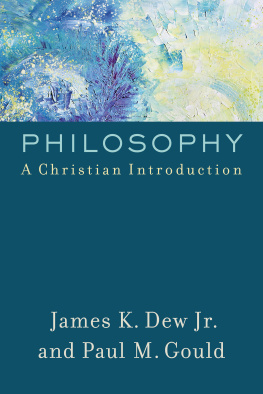

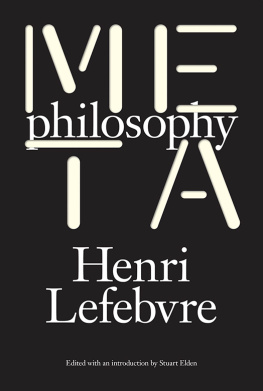
 TM The paper used in this publication meets the minimum requirements of American National Standard for Information Sciences Permanence of Paper for Printed Library Materials, ANSI/NISO Z39.48-1992.
TM The paper used in this publication meets the minimum requirements of American National Standard for Information Sciences Permanence of Paper for Printed Library Materials, ANSI/NISO Z39.48-1992.